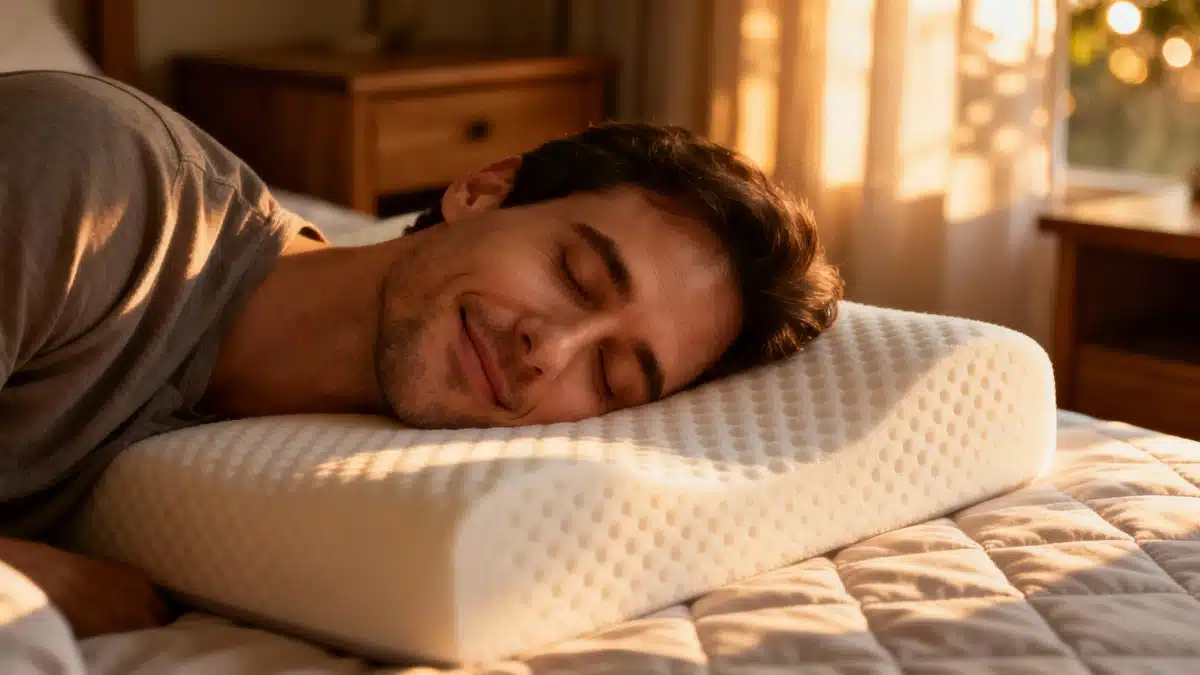Melatonin is often dubbed the « sleep hormone »—the trusty helper that nudges us toward dreamland at the end of a long day. But is popping a melatonin pill really the secret shortcut to better sleep? Or could there be some bumps—and side effects—on the road to a good night’s rest?
How Melatonin Works: Nature’s Nightcap
Melatonin is a small molecule produced in our brains, with production ramping up as daylight fades. Its levels in the blood peak around 3 or 4 a.m. before dropping off—just in time for us to get up and tackle another day. Sounds straightforward, right? Not so fast! External light can disrupt this delicate process.
The light that hits our eyes is sent straight to our brain’s master clock, the hypothalamus. According to Inserm (the French National Institute of Health and Medical Research),
“The information is then relayed to the pineal gland, that tiny structure in charge of releasing melatonin.”
What does this mean in practice? Spend your evening basking in the strong glow of your TV, computer, or smartphone screen, and you’ll likely find that sleep remains frustratingly out of reach.
Melatonin Supplements: Quick Fix or Risky Self-Medication?
More and more people are turning to synthetic melatonin to make it easier to fall asleep—or to fend off the infamous effects of jet lag (especially after crossing more than five time zones heading east). But before you reach for yet another supplement, take heed of Inserm’s warning:
“Taking this little molecule is not trivial and can lead to various side effects: drowsiness, headaches, dizziness…”
In a 2018 advisory, the French Agency for Food, Environmental and Occupational Health & Safety (Anses) emphasized that melatonin isn’t for everyone. Certain groups should avoid it or consult a healthcare professional first, including:
- Pregnant or breastfeeding women
- Children and teenagers
- People with inflammatory or autoimmune diseases
- Those with asthma, epilepsy, mood disorders
- Anyone needing sustained alertness for work or other activities
Watch Out for Side Effects
From 2009 to May 2017, at least 90 adverse effects linked to dietary supplements containing melatonin were reported to French authorities. The French National Agency for Medicines and Health Products Safety (ANSM) recorded over 200 reports—no matter the product’s regulatory status—from 1985 to 2016.
In addition to general symptoms, Anses also noted neurological issues (like tremors, migraines) and gastrointestinal upset (nausea, vomiting, abdominal pain). The agency had already sounded the alarm:
“In the absence of sufficient data on the long-term effects of melatonin consumption, it’s better to limit these supplements to occasional use.”
Anses recommends a cautious approach:
“Consult a healthcare professional before taking dietary supplements and let your doctor know if you do.”
Pill for All? Not So Fast…
Melatonin might sound like it has superhero powers, but swallowing it in pill form isn’t the universal cure for sleep trouble that some people believe. In France, melatonin is found in medications, custom-compounded preparations, and dietary supplements. Regulations there allow supplements of up to 2 mg melatonin per day; above that, it’s considered medication. Anses, in its second warning on this subject, has called for harmonized EU-wide rules and safety studies for doses lower than 2 mg.
Currently, only one prescription medication containing melatonin—Circadin—is available in France, intended for short-term treatment of poor-quality sleep in adults aged 55 and over.
Is Melatonin Really Effective?
The French medical journal Prescrire also urges caution, citing “notable adverse effects” linked to melatonin use. Their experts don’t consider melatonin a preferred treatment for sleep disorders, questioning its effectiveness beyond what can be chalked up to the placebo effect:
“No matter the dose or product type, melatonin is not more effective than placebo for poor sleep in the short term,”
they wrote in a 2018 article.
Added to this, there are potential interactions with other medications—either reducing their effectiveness or compounding any side effects. Their bottom line?
“In any case, regardless of its status, melatonin is not a harmless substance. Its effectiveness for improving sleep is uncertain, and it carries notable risks of adverse effects.”
In short: while melatonin is often marketed as a quick fix for sleep woes, its use should be carefully considered and discussed with your doctor.

John is a curious mind who loves to write about diverse topics. Passionate about sharing his thoughts and perspectives, he enjoys sparking conversations and encouraging discovery. For him, every subject is an invitation to discuss and learn.





